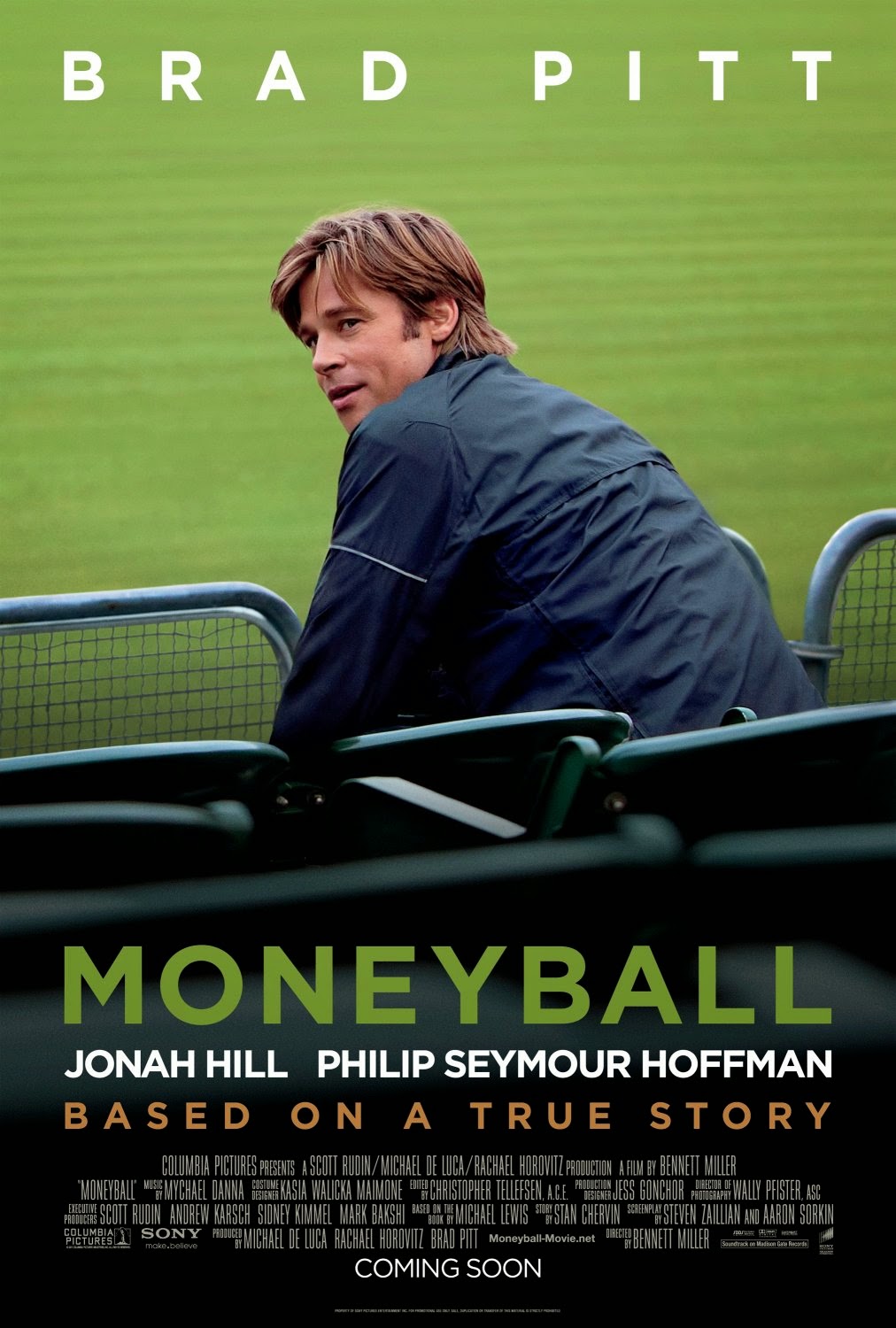Sure, Moneyball is a movie about baseball, but to call it a ‘baseball movie’ is a little like calling The Social Network a computer movie.
Baseball fans are sure to like it (even though they all know ‘how it ends’), but it also stands on its own as a funny, compelling, and (get this) terrifically-acted movie starring one Brad Pitt.
Based on the bestseller by Michael Lewis, Moneyball tells the story of the 2002 Oakland Athletics and their battle to stay afloat in the most financially-lopsided sport in the country. As general manager Billy Beane (Pitt) puts it, “There’s rich teams, there’s poor teams, there’s 50 feet of crap, and then there’s us.”
When the flick begins, the A’s are getting ousted by the New York Yankees in the 2001 Division Series, but the real score is flashed on the screen in letters two feet high: Yankees payroll: $114 million vs. A’s: $39 million. And then it gets worse. Beane can only sit and watch as the Red Sox, Yankees, and Cardinals pilfer his three star players.
Left with no money and no team, Beane realizes he has no choice but to think outside the box. Way outside the box. Salvation comes in the form of a fresh-out-of-Yale brainiac named Peter Brand (Jonah Hill), an economics geek with a deep love for the game of baseball. While Beane’s decrepit gaggle of scouts sit around a table jawing about how the quality of a player’s girlfriend impacts his game, Brand goes by the numbers. And he and Beane set out to put the best team together that they can. And it works.
And the film works, too.
Of course it helps that the script comes from arguably the two best screenwriters at work today– Stephen Zaillian (the upcoming The Girl with the Dragon Tattoo) and Aaron Sorkin (The Social Network). The easy-breezy dialogue and sharp wit keep things moving at a pace that belies the films 133-minute run time.
Hill’s understated performance as number-cruncher Brand is among the best of his young career, and Pitt has, arguably, never been better (it helps that Beane seems to be an extension of Pitt’s own personality).
Director Bennett Miller (Capote) wisely kept Moneyball from dissolving into a (literally) inside-baseball sports movie mired down with talks of balls and strikes. Instead, he focuses on the people and the personalities; it could have just as easily (well, almost) been a story about a pair of guys in a PR firm or on a construction site. Though the occasional baseball-movie cliché pops up (the slo-mo shot of the pitcher hurling that last, decisive pitch), by and large Moneyball is a fresh and fun take on the game of life.
4/5 stars
